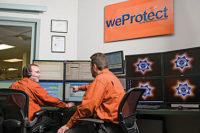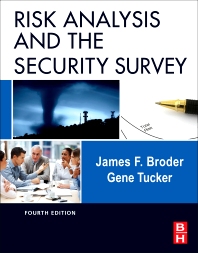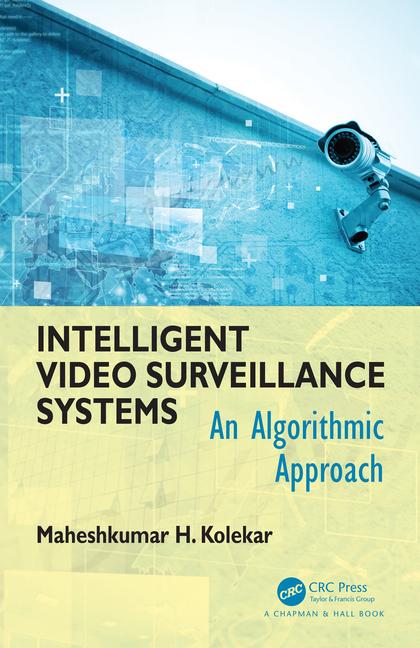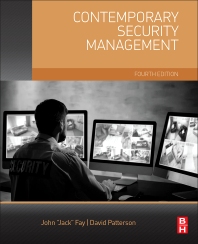For the security integrator today, recurring monthly revenue is the holy grail of opportunity, and one that has not been as straightforward to achieve as it is for dealers with central stations. But the advent of IP technology, mobile devices and cloud storage is making it easier than before, as manufacturers offer more and more cloud access solutions.
Read about other cloud-based services
At a recent “Cloud Access Control” presentation at the PSA-TEC conference held in Westminster, Colo., in May, Greg Yusi, western regional manager at Kantech, Tyco Security Products, Westford, Mass., asked the audience, “How many of you currently offer cloud-based access control?” About half raised their hands. Of those, some had been offering “cloud” for many years, while others were just starting to dabble in it. Whether they had been doing it for a while or had yet to start, all had questions about how to implement the technology it, how to sell it, and what it could do for them.
PSA member Ken Robison, vice president and COO, CCS, San Diego, uses the Kantech cloud solution and also spoke at the presentation. “I truly believe in managed access as a product,” he said. “It is one of the hottest things out there right now for the renewable revenue model.”
Yusi shared numbers with the audience that projected a growth rate for the traditional access control computer/panel model of about 12 percent annual growth, on average. The software-as-a-service (SaaS) market as a whole enjoys a 35 percent compound annual growth rate, he said.
“Our experience with access control as a service is that it is growing about 23.8 percent,” Yusi said. “An average access control system is one computer per eight doors with eight to 12 doors per location. For the integrator this means multiple sites, hours involved and zero RMR other than service or maintenance plans. If you take a hosted platform, now you can manage all those sites from one location, provide a higher level of service and generate RMR. It is not yet to where the music or movie industry has taken this, but we are approaching that type of shift.”
SDMspoke to several integrators about their experiences with cloud access control and advice for others who want to get into selling this model. In addition, many manufacturers have new products or services related to cloud access and a sampling of those is featured below.
How Does It Benefit You?
“What I like most about [cloud access] is it is a recurring service model,” says Brian Sullivan, general manager and principal, PASS Security, St. Louis, Mo. “Not only that, it also creates a connection with the customer that is not a ‘one and done project.’ We are creating an experience with that customer where we are in front of them on a consistent basis and performing a service for them. There are potential upgrades in the future.”
Sullivan got into cloud access control a few years ago in order to help a school district customer that didn’t have the structure in place to manage the scheduling and badging themselves. “We decided to take that on for them. It solved the problem by avoiding or eliminating many of the traditional challenges.”
Solving something for the end user helps both the client and the integrator, putting the security folks in charge of what they do best and letting the end user stick to what they know best. Ideal applications for cloud access include small to medium-sized businesses, property management companies, and large corporations that have multiple smaller sites.
“It’s a win-win,” says integrator Jim Pinto, principal, Key Security Designs (KSD) Corp., San Francisco. “It is easier for us to install and maintain, and easier for the client to access data and run reports from virtually anywhere.
“We are 80 percent cloud-based now and have been growing. The lion’s share of that business has been small to medium facilities; however, recently we had the fortune to work with some larger companies with a footprint across the U.S. with many sales or small offices,” Pinto describes.
In today’s atmosphere of IT involvement in security purchases, cloud is something that inherently makes sense to them. But even smaller customers that don’t have an IT person to run things also “get it” now.
As Yusi pointed out, “people don’t need convincing anymore. If you haven’t jumped on board with some provider already, it is a good time to get into it. The value of it is much easier to sell, with Google, Windows and others doing such a great job selling SaaS. It is easier for us to say ‘access as a service’ and not have to describe what cloud means.”
More often customers are used to paying a monthly fee for something, whether that is Internet, mobile phone or maintenance for their computers, says Shawn Sharp, managing member, Kingdom Security LLC, La Porte, Texas. “Instead of paying someone a large maintenance package to keep technology going, they can pay us to host their access control system. They are already used to paying RMR. The mindset over the next 10 to 15 years will be that they are already doing this for everything else. We look at it as meeting the needs in the way a lot of these companies are turning anyway.”
Kirk Davidson, president, Commercial Security Integration, Austin, Texas, sees cloud access as a sound investment for his company’s future. “If we want to look at having our company acquired by someone down the road, an average company needs to have a minimum of 20 percent RMR. Our cloud business started slow but has really grown in the last two years as we are marketing and selling it more. We are hoping to grow that to be 15 percent of our business, which with other services we offer will have us up to 30 percent RMR.”
Robison, too, points to this reason as one of the main ones integrators should at least consider offering managed access today. “This is why I believe in it, because of what it does for your company. Before we started doing managed access I hadn’t really thought about the effect on our company from a health standpoint. But if you don’t have some sort of renewable revenue model and you go to sell, you will be surprised.”
How to Get into It
For a typical integrator not used to the RMR model, it can be daunting to know how to sell it, how to compensate your salespeople and which provider to choose.
Access control as a service means software sitting on a server, somewhere. Some integrators opt to host the software themselves, using a trusted manufacturer whose product supports that. Others turn to companies that offer to do the hosting and get their RMR on the service and maintenance charge to the customer.
Yusi advises thinking about which model you want to do as you look for a partner to work with. “What specific features do you want to provide? Do you just want to provide a ground that would be hosted and the end user manages it? Managed is the other spectrum where you are providing a concierge service as well, including generating badges and reports.”
Not hosting the software yourself is an easier initial investment. Robison notes there is a cost associated with getting on board. “You can work with someone that acts as the host, rather than doing it at your facility. There is a capital investment to play ball if you are going to host, but there are advantages as well.”
Sullivan says they did a lot of testing and research before jumping in and offering cloud access themselves. “The biggest challenges in the whole process for us were IT issues like firewall, access and connectivity. This solution provided us the best scenario to solve or create a solution for the IT challenges we saw as being a limiting factor.”
Beyond choosing a provider or partner, probably the biggest obstacle to the integrator is selling the service model. Unless you already have a central station, this may not be what your salespeople are used to.
Robison experienced some pushback, initially. “We went through quite an evolution in the sales process. It was difficult to get the salespeople to wrap their minds around the idea of proposing to the client ‘we want your money every month.’ The hardest part was getting them not to be afraid to propose this. Once we were able to sell the concept to our own sales staff, they were able to show the client the value in the solution. Once they got that first and second sale and could convey the pain points to the customer, it was on. We have now evolved to where we are no longer proposing access control as an onsite system.”
Pinto calls it the “less is more” principle. “I think it takes becoming knowledgeable about the technology, certainly. It is also a matter of making the sales staff cognizant of the fact that for the client less is more. Less equipment on site equals fewer issues and problems.”
Many integrators find it takes a different kind of compensation plan — for example, multiples of the RMR contract. A typical plan ranges from two to six times the monthly revenue as a one-time bonus.
Sharp found hiring additional sales staff that were familiar with burglar alarm sales a valuable tool. “They were used to that RMR model and selling that. The guys we have who had been doing what we do for a long time don’t even want to propose the cloud. They are stuck in the old mentality and it is hard to get them to buy into the advantages.”
Now the two teams are not selling the same kind of jobs. The RMR staff have a mid-sized compensation plan that is highly commissioned on the RMR side of it, he adds.
“I think integrators need to have a look at their individual company and see how this fits into their model,” Davidson says. “For us this opened up a part of business that I was not going after before. We load it on a server and have it up and running and on automatic renewal for multiple years on an annual basis. No one is locked in long term. It has worked out really well.”
If you want to add the convenience of cloud without the hassle and expense of maintaining the servers, Cloud 9 Access Control Services lets you manage the access control system from anywhere with Internet service. Cloud 9 supports RS2 Technologies LLC, Access It! Universal software, which supports open architecture access control hardware made by Mercury Security, ASSA ABLOY and Schlage Electronics. “We have taken the RS2 software and put it in the cloud,” says Tom Cychosz, principal owner, Cloud 9, Dallas. “We are an access control enabler. We do the access control for the integrator so they don’t have to deal with server patches and software updates.”
Cloud-based Security Management Solution
Keep by Feenics is a security management solution designed to work in a LAN or hosted cloud-based environment. The system consists of Feenics licensed hardware manufactured by HID and Mercury, and is based on Microsoft’s .Net architecture. “Customers are starting to ask for cloud hosted/SaaS products because they deliver value and they don’t want to find themselves stuck on legacy platforms anymore,” says Brian Matthews, director of sales, Feenics, Ottawa, Ontario, Canada. “Feenics was founded by an integrator because his customers were asking for cloud-based products. Whether or not we realized it, we’ve been using cloud-based products for almost a decade and security is finally starting to accept that “cloud” is here to stay.

















